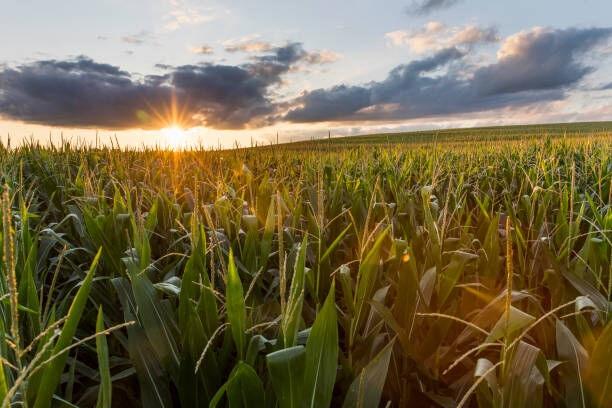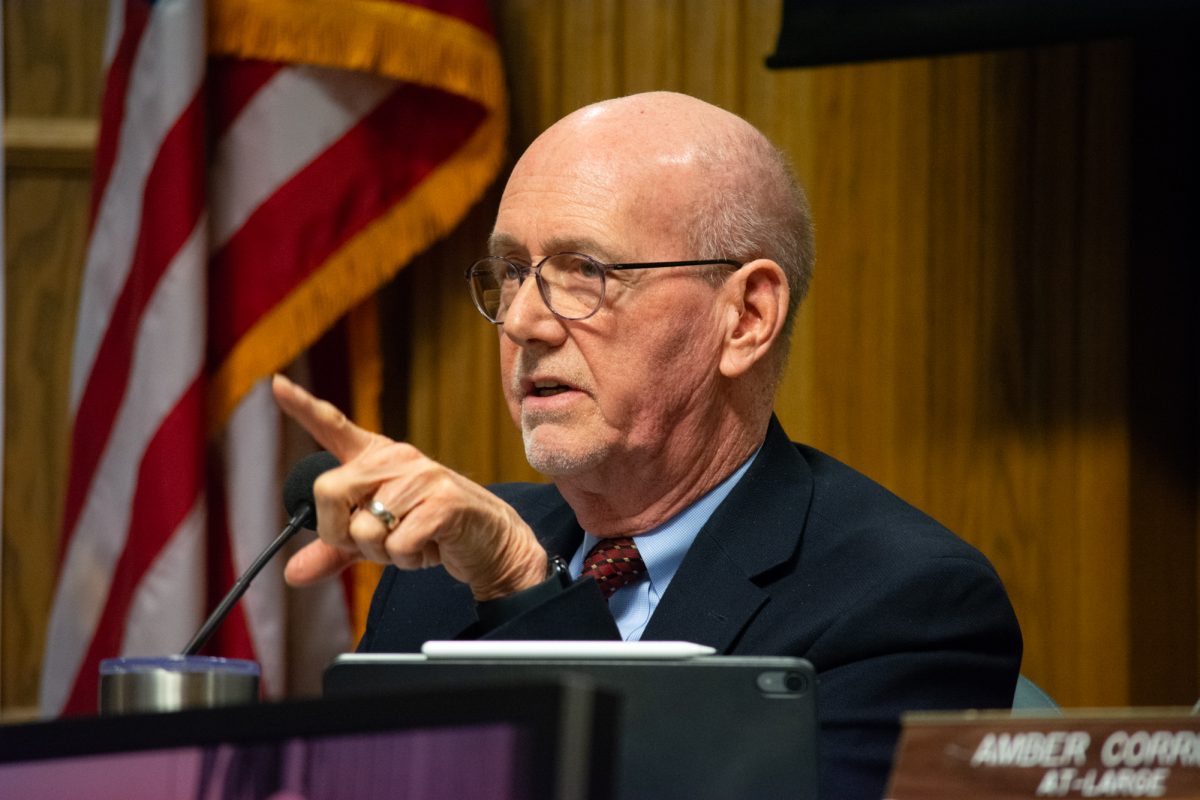I will admit I feel self-conscious at times being an agriculture studies major without having been raised on a farm. My peers bring their years of experience helping families on their farms, enhancing their overall knowledge of markets, products and practices.
I grew up on a rural acreage, surrounded by farms and have been working in the agricultural field every summer since my sophomore year of high school. Still, I feel like an imposter. However, I then remember that everyone deserves a say in how our food, fiber and fuel are generated. Everyone deserves a say in how global resources are used.
Over the years of taking agricultural courses at Iowa State, my peers and I have different opinions on what the purpose of agriculture is. The Merriam-Webster Dictionary defines agriculture as “the science, art, or practice of cultivating the soil, producing crops, and raising livestock and in varying degrees the preparation and marketing of the resulting products.”
I prefer this definition because, in my view, describing agriculture as a science, art and practice is correct.
While I don’t disagree that marketing products are a part of agriculture, some may suggest that agriculture is meant for agriculturalists (farmers, landowners and agricultural business owners) to maximize profits within the market.
I thank my resource economics course this semester for showing me economics doesn’t always have to be about maximizing profit. In fact, I now see sociology and economics as different means to the same end: to explain human behavior.
Sociologists are more often associated with human welfare than economists, but both can study how to maximize the benefits to society. To that point, I believe the purpose of agriculture is to produce organic products to maximize benefit to society.
What difference does my belief in agriculture’s purpose cause? One example is the ethanol mandate in America. The purpose of the mandate is for certain quantities of ethanol to be bought and mixed into gasoline to supposedly reduce greenhouse gas emissions and decrease reliance on foreign energy.
The numbers for reductions in greenhouse gas emissions are questionable and I can’t speak on how ethanol has affected our dependence on foreign energy. What I can say is that I believe the main purpose of the ethanol mandate was to raise demand for corn and revenue for farmers.
The ethanol mandate has raised the price of corn and provided more incentives to farmers to grow corn. The focus on this “improvement to agriculture” was that the price of corn would increase and, in turn, so would revenue for farmers.
Similarly, farmers often talk about the rate of nitrogen they should apply to maximize yields and profits. Conservation practices are held against the profits they may make or take away from.
Advancements in agriculture are said to be new high-yielding corn or soybean varieties or a more effective pesticide mix. The “pro-agriculture” side in policy often fights for less regulation and more profit.
It is egregious that this is what the focus on agriculture is on. I cringe when I hear the phrase, “my backyard feeds America.” Yes, their corn and soybeans may be used for feed for livestock that I consume. The corn may be turned into syrup for the processed foods I buy. These grain farmers are not producing wheat or fruit or vegetables that I eat. They grow crops for profit, not to feed Americans.
I don’t blame farmers for doing their best to make a living. I blame them if they advocate in favor of their yields and profits over benefits to society.
The “pro-agriculture” side in policy at times lobbies for fewer labor protections for workers. They advocate against water quality protections, leaving our drinking water contaminated and our recreational waters unfit for activity. They invest more to breed pesticide-resistant crops than they do to help the declining number of beneficial insects like bees and butterflies.
They have advocated for farmland owners’ rental income to be tax-free, leaving less government funds for education, healthcare and environmental protections. Many have a mindset that fertile land should always be used to grow crops, no matter if additional grain is needed. The list goes on.
What do I want to change? Two main things. First, I want farmers and the agricultural industry to stop asking, “How can I better maximize profits?” and start asking, “How can my land, crops and livestock best help my community?” This shift in mindset will have positive effects across many different aspects of life. If farmers focused more of their political efforts on making sure food reached American stomachs, maybe I would accept the phrase “my backyard feeds America.” This leads to the second thing I want changed: policy.
Policy should be focused on helping all people, not just farmers, landowners and business owners. Policy needs to start with how change impacts all of society and not merely how the change affects the profit margins of corn and soybeans.
Until policy rewards farmers who care about community more than yields and profit, farmers should not be expected to do so. They may be shamed for any unjust views they hold, but I can not blame someone for wanting to make more money if they can.
So please advocate for changes in the mindset of the purpose of agriculture. With changed mindsets and thoughts, actions and words will change. With changed actions and words, policy will change. With changed policy, our society can be cleaner, healthier, happier and have more full stomachs.









M | Nov 9, 2023 at 12:19 am
Great piece!
Renate Dellmann | Nov 8, 2023 at 7:58 am
it’s very much an uphill battle. The idea of organic farming took almost fifty years to filter into public awareness. Maybe our young people, with the help of the old, will be able to turn things around.